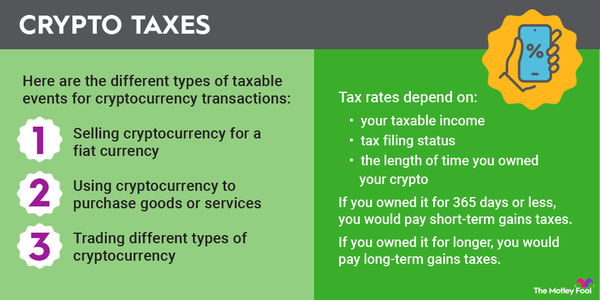Bitcoin (BTC -5.37%) has been one of the most exciting investments of the 2000s. One Bitcoin was worthless when it launched in 2009, but 15 years later, its price surpassed $100,000. Now, Bitcoin exchange-traded funds (ETFs) have made it easier to invest.
After years of waiting, the U.S. Securities and Exchange Commission (SEC) approved funds based on Bitcoin's spot price in 2024. The move increased Bitcoin's price and its appeal for institutional investors. Here's what you need to know and the best Bitcoin ETF options.

What are Bitcoin ETFs?
What are Bitcoin ETFs?
Bitcoin ETFs are funds that trade on a stock exchange and attempt to track the performance of Bitcoin. When you buy an ETF, you aren't buying the underlying investment directly. Rather, you're buying shares of a fund that either invests in or attempts to mimic the performance of a particular security or index -- Bitcoin, in this case.
Bitcoin vs. Bitcoin ETFs
Bitcoin vs. Bitcoin ETFs
Investing in Bitcoin directly is slightly more profitable than investing in a Bitcoin ETF. Even the best fund isn't going to perfectly track the crypto's price since there are fees built into ETFs to pay for management.
However, a direct investment in Bitcoin or other digital currencies requires extra work compared to investing in stocks, bonds, and the like. Many traditional brokerage firms don't support cryptocurrency trading. If yours doesn't, you'd need an account with a crypto trading exchange. And if you want to store your crypto yourself, you need a crypto wallet.
Bitcoin ETFs provide a workaround so your investment in Bitcoin can be held in the same account as your other stocks, bonds, and traditional investment securities. They also make it easier to get Bitcoin investment exposure in an individual retirement account (IRA) or Roth IRA. These retirement accounts offer tax advantages that you don't get if you invest in Bitcoin directly.
Top 5 Bitcoin ETFs
5 Bitcoin ETFs and funds for 2025
Before SEC approvals in January 2024, Bitcoin funds were only generally available using futures contracts in their portfolios. Bitcoin ETFs can now directly purchase Bitcoin and hold it in custody (or outsource the holding of the Bitcoin to a third party). Here are five options to consider:
| Name and ticker | Current price |
|---|---|
| iShares Bitcoin Trust (NASDAQ:IBIT) | $66.24 |
| Grayscale Bitcoin Mini Trust (NYSEMKT:BTC) | $51.66 |
| Fidelity Wise Origin Bitcoin Fund (NYSEMKT:FBTC) | $101.73 |
| Ark 21Shares Bitcoin ETF (NYSEMKT:ARKB) | $38.76 |
| Bitwise Bitcoin ETF Trust (NYSEMKT:BITB) | $63.40 |
ETFs 1-3
1. iShares Bitcoin Trust
The iShares family of ETFs, from investment management titan BlackRock (BLK -3.0%), was among the first Bitcoin spot price ETFs approved by the SEC. It also quickly emerged as the largest Bitcoin fund, scooping up more than $50 billion in investor assets under management (AUM) in its first year.
While iShares takes care of the management of the passive investment vehicle, Coinbase's (COIN -7.73%) Custody service actually holds the Bitcoin that makes up the ETF's portfolio of assets. In fact, Coinbase Custody scooped up a large share of Bitcoin from SEC-approved ETFs.
iShares is a well-established ETF provider with decades of experience. The iShares Bitcoin Trust (IBIT -3.64%) is also an affordable option, although it's not cheapest. It has a 0.25% management fee (or $2.50 in annual fees for every $1,000 invested).
2. Grayscale Bitcoin Mini Trust ETF
Grayscale has multiple Bitcoin ETFs, but in this case, bigger isn't better. The Grayscale Bitcoin Trust ETF (GBTC -3.67%) is one of the largest Bitcoin ETFs. It also charges a hefty 1.5% annual fee ($15 each year for every $1,000 invested).
The Grayscale Bitcoin Mini Trust ETF (BTC -3.65%) is the more affordable version, and it's also among the most affordable Bitcoin ETFs currently available. It has an expense ratio of just 0.15%, so you pay $1.50 each year for every $1,000 invested.
3. Fidelity Wise Origin Bitcoin Fund
Fidelity is another global investment giant and was among the first to dabble in the nascent cryptocurrency industry. It launched a cryptocurrency exchange in 2023, so an ETF on the top cryptocurrency, Bitcoin, is a natural fit.
The Fidelity Wise Origin Bitcoin Fund (FBTC -3.63%) started trading in January 2024. It has an annual expense ratio of 0.25%. Given Fidelity's long tenure in the investment world, this ETF is worth considering.
ETFs 4-5
4. ARK 21Shares Bitcoin ETF
It comes as no surprise that Cathie Wood's Ark Invest would also offer a Bitcoin ETF. Wood and company are known for investing in disruptive new technology, and blockchain, and Bitcoin are no exception.
As the name implies, the ARK 21Shares Bitcoin ETF (ARKB -3.64%) is sponsored by cryptocurrency investment outfit 21Shares. This is also an affordable option since the ETF has a 0.21% annual expense ratio.
5. Bitwise Bitcoin ETF Trust
Rounding out the list is an ETF from Bitwise Asset Management, a crypto asset manager. Its Bitwise Bitcoin ETF Trust (BITB -3.69%) was another of the first to receive ETF approval, and it's affordable, with an annual fee of 0.20% ($2 each year for every $1,000 invested). Like other funds on this list, this Bitwise ETF uses Coinbase Custody for its Bitcoin storage.
Related investing topics
Why invest
Why invest in Bitcoin ETFs?
Here's why you may want to invest in a Bitcoin ETF:
- You want to hold Bitcoin in an IRA or Roth IRA for the tax benefits.
- You don't want the complexity of buying and storing Bitcoin yourself or on a crypto exchange.
- You prefer the convenience of buying and selling shares in an ETF and having your broker calculate capital gains for you.
While most crypto enthusiasts are comfortable buying Bitcoin directly, ETFs are a good alternative for those who want a more traditional investment option.
Even if you're experienced with cryptocurrency, shares of a Bitcoin ETF could still make sense in a retirement account, particularly a Roth IRA. That way, your investment can grow tax-free and you can withdraw it tax-free in retirement.
How to choose
How to choose the best Bitcoin ETFs
The main factors to consider in choosing a Bitcoin ETF are the fees, size, and reputation of the fund manager. Management fees cut into your returns, so a lower expense ratio is generally better. Larger Bitcoin ETFs tend to have more liquidity, making it easier to buy and sell shares. Finally, it's always important to invest with a reputable fund manager that you can trust to safely store its Bitcoin reserves.
FAQs
FAQs about Bitcoin ETFs
Which ETF is best for Bitcoin?
Some of the best Bitcoin ETFs include the iShares Bitcoin Trust, Grayscale Bitcoin Mini Trust ETF, and the Fidelity Wise Origin Bitcoin Fund. The best Bitcoin ETF to choose will depend on various factors, like the annual fee, the reputation of the investment manager and its custodian, and the fund's total investor assets under management.
Does a Bitcoin ETF exist?
There are now many Bitcoin ETFs that invest in Bitcoin itself, based on the top cryptocurrency's actual daily price movements. Most of the top investment management firms offer Bitcoin ETFs.
What is the new ETF for Bitcoin?
Most spot Bitcoin ETFs launched in 2024. Some of the most popular include the iShares Bitcoin Trust ETF, Fidelity Wise Origin Bitcoin Fund, and ARK 21Shares Bitcoin ETF.
What does the approval of Spot Bitcoin Exchange mean?
The U.S. Securities and Exchange Commission (SEC) approved applications for Bitcoin exchange-traded products in early 2024. This means ETFs can hold the cryptocurrency Bitcoin in their portfolio, directly or through a third-party custodian. The approval gives investors an easier way to gain cryptocurrency exposure in their investment accounts.
Does Vanguard offer a Bitcoin ETF?
No, Vanguard doesn't offer a Bitcoin ETF. Vanguard believes cryptocurrencies are highly speculative and not appropriate for long-term investments. As such, it doesn't offer any Bitcoin ETF products.
What is the biggest Bitcoin ETF?
The biggest Bitcoin ETF by assets under management (AUM) is the iShares Bitcoin Trust ETF.
Can Bitcoin ETFs outperform Bitcoin?
Since Bitcoin ETFs have management fees, they'll lag the performance of Bitcoin itself. The exact difference depends on the Bitcoin ETF's expense ratio.

























